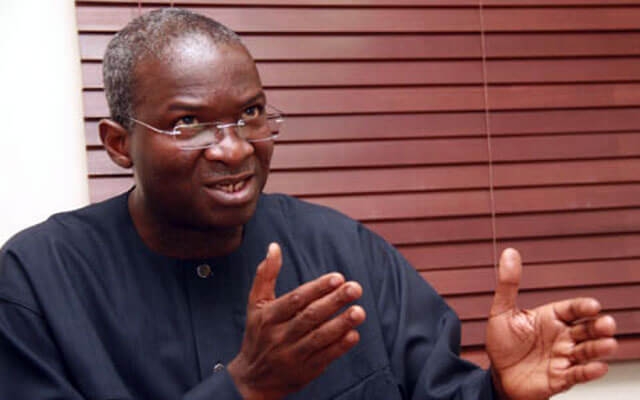 Babatunde Fashola, Minister of Power, Works and Housing[/caption]
Babatunde Fashola, Minister of Power, Works and Housing[/caption]
In what could be surprising turn around, Minister of Power, Works and Housing, Babatunde Fashola SAN has said though there was growth under former President Goodluck Jonathan, it Was mainly due to high oil prices.
Speaking at the fifth EU-Nigerian Business Forum, Fashola said the growth over the past decade was driven by high oil prices, not any economic policy implemented by the Jonathan administration.
“In the last decade or so, we experienced growth in the region of about seven, seven and a half, eight percent, but the commentary that followed those growth records was that people were still struggling, and ultimately, the public coined a narrative known as non-inclusive growth,” he said.
Advertisement
“There is a need to invest in infrastructure, and that is the meat of the point. That is the globally tested parameter for driving growth. In the scinece of economic management and governance, nobody has found a different way.
“I say this in the context of those who are tempted to lay some claim to any form of credit about why our economy was growing at seven percent for almost a decade, and I say very very clearly, without mincing words, that I don’t that anybody can fairly lay claim to any economic policy that drove that growth.
“It was growth that was driven by high oil prices. If we agree that infrastructure is the driver of growth, when you get high oil prices, what do you do with it? So, where are those towers, where are those bridges, where are those highways?
“It is fair to concede some initiatives, especially in the same sector in the petroleum industry, about promoting local content, but how far did local content go? It wasn’t in the productive part of oil, the rigs were not locally made, and all the technology wasn’t local.”
Advertisement
President of the Lagos Chambers of Commerce and Industry (LCCI), Nike Akande, who also spoke at the fifth EU-Nigerian busines forum, said “the decline in crude oil price has considerably changed our development focus for good”.
“We are taking steps to reduce our reliance on oil. A lot of attention is now being paid to manufacturing, agriculture and agro allied industries, solid minerals, lCT, entertainment and tourism and many other areas in the non-oil sector.
“The government is also focusing on the development of infrastructure to enhance the productivity of the non-oil sector of the economy, infrastructure provision such as power and transport offers tremendous opportunities for investment which the EU investors can explore at this time.
“Time has come for EU investors to put lesser emphasis impediments in the Nigerian market and pay attention opportunities and potentials in the economy.”


